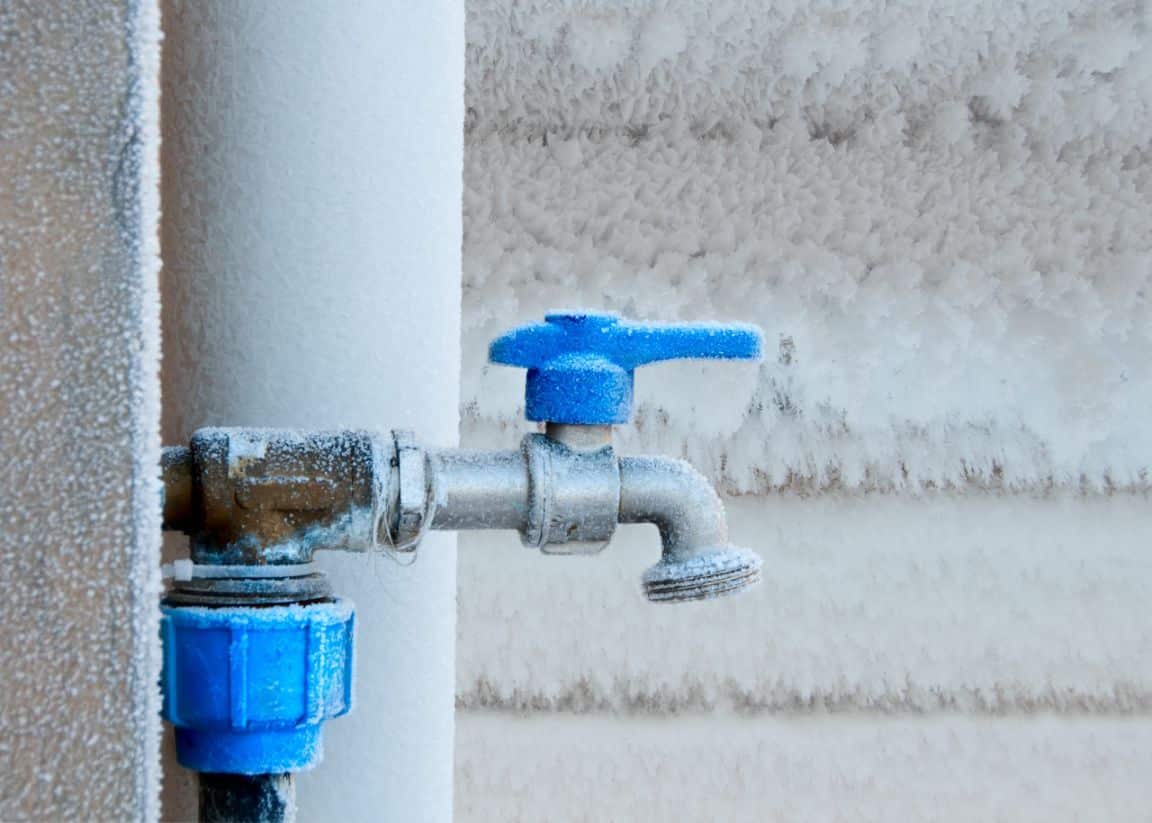Frigid winter temperatures can cause your pipes to freeze — or even burst. It doesn’t take much for faucet hookups and exposed water pipes to freeze and potentially burst, creating havoc in your home. High Priority Plumbing wants YOU to know how to recognize frozen pipes and even more importantly, prevent them from freezing at all! So, our team has put together several tips on how you can both recognize and prevent this common problem.
Recognizing Frozen Pipes
One of the earliest signs of a frozen pipe is when no water comes out of your faucet when you turn it on or your toilet is not refilling after a flush. If this happens you should first check to make sure your main water valve is turned on and that there are no noticeable leaks. If everything looks normal you might have frozen pipes and you should contact your plumber to verify.
When the water in poorly insulated pipes is exposed to freezing temperatures (32 degrees Fahrenheit and below) the water will freeze and expand, causing pressure to build in whatever is containing it. Even the strongest materials, like metal pipes, can buckle, break and burst from extreme pressure. Pipes that freeze most frequently are the ones that are exposed to severe cold, like outdoor hose bibs, swimming pool supply lines, and water sprinkler lines. Water supply pipes that are in unheated interior areas of your home, like basements, crawl spaces, attics, garages, or kitchen cabinets are also vulnerable to freezing.
Preventing Frozen Pipes
We can’t control the weather, but there are a few things we can do to prevent pipes from freezing. Some steps you can take to prevent pipes from freezing are:
- Drain water from pipes that are likely to freeze. This includes your swimming pool and sprinkler water supplies.
- Keep garage doors closed if there are water supply lines in the garage.
- Open your kitchen and bathroom cabinet doors to allow warmer air to circulate around the plumbing.
- Keep your thermostat at the same temperature both day and night. Never let it fall below 55 degrees Fahrenheit when you leave your home.
- In extremely cold weather, let the cold water drip from the faucet. Running water through the pipe — even just a trickle — helps prevent pipes from freezing.
- Thawing Frozen Pipes
If you believe your pipes have frozen there are some safe and easy ways to attempt thawing them out yourself. If you attempt to thaw the frozen pipes, keep these tips in mind.
Keep the faucet open. As you treat the frozen pipe and the frozen area begins to melt, water will begin to flow through the frozen area. Water running through the pipe will help melt the ice in the pipe.
Apply heat to the section of the pipe that you believe is frozen. You can apply heat using an electric heating pad wrapped around the pipe, an electric hair dryer, or a space heater.
DO NOT use any type of open flame to heat the pipe. Never use a blowtorch, propane or kerosene heaters.
Frozen water pipes and the damage they can cause are a reality for thousands of people each year. If you have any questions, concerns or difficulties in regard to your plumbing, please contact one of our plumbers. If you’re interested in more plumbing tips or services please give us a call at 770.860.8110 or you can visit our website.
